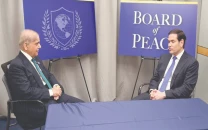Bangladesh: looming uncertainty
The stand-off warrants political solution. Military coups in Bangladesh, unlike in Pakistan, have always been bloody.

The writer is a public policy analyst and a former federal interior secretary
The question arises: was the opposition’s decision of boycotting the elections the correct one? The BNP may have thought that it would be in a better position to question the election results and the moral authority of the ruling party, bring it under pressure and force mid-term elections to break the gridlock, if it boycotted the electoral process. Right now, we can only conjecture if the BNP can achieve its objectives, but serious questions are being raised about these results. The AL won 232 out of 300 seats. The downside is that 153 candidates of the ruling party got elected unopposed. The turnout was just 22 per cent of the registered votes. This happened in a country where the people are known for their deep political insight. The European Union, the Commonwealth and the US declined to send their observers to oversee the election process, which according to them, was far from being inclusive. Independent observers in Bangladesh have also termed the elections flawed. Despite the win, the ruling AL, ironically, has boxed itself into a no-win situation.
There is also a regional dimension to the crisis and that is the India factor. Bangladesh and India have been collaborating in many key areas. Bangladesh provides transit access to India’s seven farthest, virtually landlocked, states through its land route and waterways. Both countries have been cooperating in combating terrorism. However, several issues had emerged on which, in the past, the BNP had taken a strident stand that went against Indian interests. India had been erecting a 3,300km fence along the India-Bangladesh border, to which Bangladesh had reacted negatively. Bangladeshis in the border areas reportedly are subjected to harassment and high-handedness by the Indian security forces. Non-implementation of the water accord on the Teesta River has been another sore point. Non-ratification by India of the border agreement of 1974, which gave both countries access to each other’s enclaves, had been a simmering issue. While Bangladesh had fulfilled its commitment in this regard, India had been dragging its feet and would not have felt comfortable with a BNP victory. According to credible media reports, senior Indian officials, well before the elections, had urged US authorities to exert influence on the Bangladesh government to tackle Islamists by holding elections without the BNP-led coalition. The US authorities, however, were reportedly of the view that the best way was to engage everyone in the electoral process.
Right now, the BNP and its allies are down but certainly not out. In the first phase of the local elections, the Jamaat-backed candidates have shown impressive results and it has emerged as the third-largest group after the two mainstream parties. The spate of bloody violence, however, goes on without any let-up. It is high time the two parties reached out to each other before the entire democratic process gets derailed. The stand-off warrants a political solution. Military coups in Bangladesh, unlike in Pakistan, have always been bloody. Who would know this better than the two Begums leading the mainstream parties? One lost her father and the other her husband to brutal assassinations.
Published in The Express Tribune, March 20th, 2014.
Like Opinion & Editorial on Facebook, follow @ETOpEd on Twitter to receive all updates on all our daily pieces.



















COMMENTS
Comments are moderated and generally will be posted if they are on-topic and not abusive.
For more information, please see our Comments FAQ